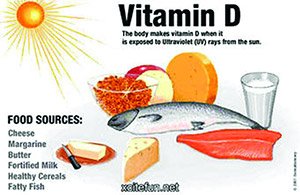VITAMIN D supplements protect against acute respiratory infections including colds and flu, according to a study led by Queen Mary University of London (QMUL).
The results, published in The BMJ, are based on a new analysis of raw data from around 11,000 participants in 25 clinical trials conducted in 14 countries including the UK, USA, Japan, India, Afghanistan, Belgium, Italy, Australia and Canada. Individually, these trials yielded conflicting results, with some reporting that vitamin D protected against respiratory infections, and others showing no effect.
Robust evidence
The study provides the most robust evidence yet that vitamin D has benefits beyond bone and muscle health, and could have major implications for public health policy, including the fortification of foods with vitamin D to tackle high levels of deficiency in the UK.
Lead researcher Professor Adrian Martineau from QMUL said: “This major collaborative research effort has yielded the first definitive evidence that vitamin D really does protect against respiratory infections. Our analysis of pooled raw data from each of the 10,933 trial participants allowed us to address the thorny question of why vitamin D ‘worked’ in some trials, but not in others.
“The bottom line is that the protective effects of vitamin D supplementation are strongest in those who have the lowest vitamin D levels, and when supplementation is given daily or weekly rather than in more widely spaced doses.
“Vitamin D fortification of foods provides a steady, low-level intake of vitamin D that has virtually eliminated profound vitamin D deficiency in several countries. By demonstrating this new benefit of vitamin D, our study strengthens the case for introducing food fortification to improve vitamin D levels in countries such as the UK where profound vitamin D deficiency is common.”
The study was conducted by a consortium of 25 investigators from 21 institutions worldwide and funded by the National Institute for Health Research.
Professor Hywel Williams, director of the NIHR Health Technology Assessment (HTA) Programme said: “The interesting findings of this large study are worthy of serious further debate. This study is yet another example of how the NIHR HTA Programme reaches the parts that other research funders may not tackle!
Great article!
Well described